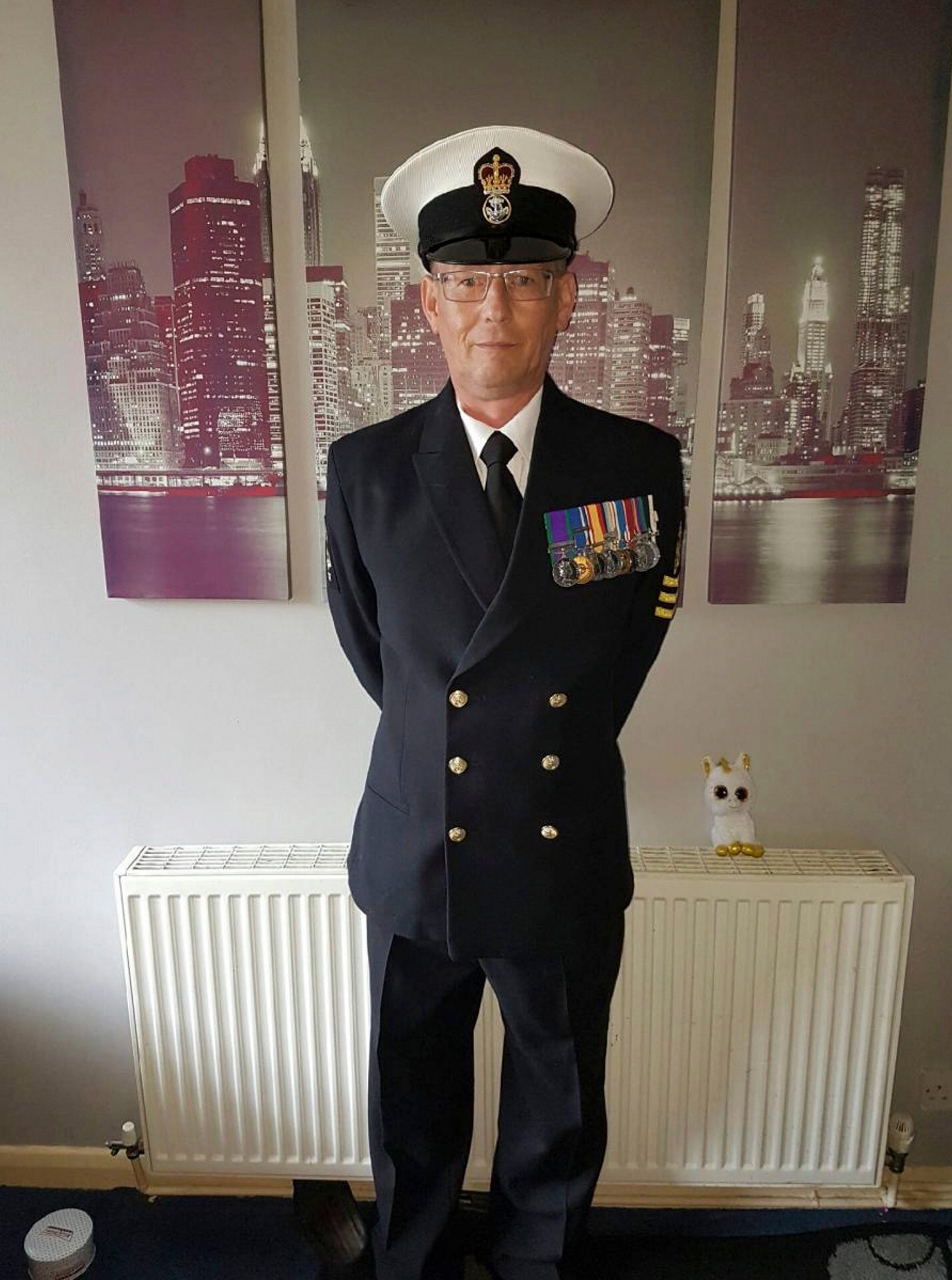Royal Navy officer who died after fitness test ‘given ultimatum to compete or leave’
Ian Fleming, who served tours in Iran and Afghanistan, was described as an ‘exemplary’ officer
Your support helps us to tell the story
From reproductive rights to climate change to Big Tech, The Independent is on the ground when the story is developing. Whether it's investigating the financials of Elon Musk's pro-Trump PAC or producing our latest documentary, 'The A Word', which shines a light on the American women fighting for reproductive rights, we know how important it is to parse out the facts from the messaging.
At such a critical moment in US history, we need reporters on the ground. Your donation allows us to keep sending journalists to speak to both sides of the story.
The Independent is trusted by Americans across the entire political spectrum. And unlike many other quality news outlets, we choose not to lock Americans out of our reporting and analysis with paywalls. We believe quality journalism should be available to everyone, paid for by those who can afford it.
Your support makes all the difference.A decorated Royal Navy officer who had heart disease died of a cardiac episode after being forced to complete a fitness test while on duty, an inquest heard.
Ian Fleming, who served tours in Iran and Afghanistan, collapsed during a fitness test he was told to complete or “leave the Navy”.
His wife told the hearing the 53 year old, described as an “exemplary” officer, had been given an “ultimatum” by his seniors, which left him with “no choice” but to take part in a “physically demanding” leadership course.
Mr Fleming had been on course to attain the permanent rank of Petty Officer, having acted as a petty officer, but was fearful of the fitness test.
Area coroner Ms Rosamund Rhodes-Kemp told the hearing: "In order to secure that promotion he had to undertake a particular training course. That made him anxious.
"He suffered from anxiety for the last three or four years. He suffered panic attacks."
Mr Fleming, known to his family and friends as ‘Paddy’, collapsed while “in the early stages” of a jogging exercise at HMS Collingwood, in Fareham, Hampshire
Despite attempts to resuscitate him, the serviceman who had been awarded numerous medals for his work, died on 16 November, 2020.
The four-week Senior Rates Leadership Course, described as “mentally and physically demanding”, involves challenges including a log run, team building exercises, Dogwatch Sports, and an obstacle course.
The court heard that failure to complete the course could result in an officer losing pay, accommodation, and rank, and can possibly affect their pension.
Mr Fleming’s wife Michele, who he married in 2000, told the inquest her husband was “noticeably anxious” about undergoing the training course, and had asked for it to be rescheduled several times.

She said: "As soon as Ian found out the date [of his training] he went into a complete meltdown.
"This was out of character for Ian as he was always laid back. Ian always gave 100 per cent to his job and wanted to do his best."
Mr Fleming sent an email to his chain of command, saying he “wasn’t in the right place” to do the course, and he would be setting himself “up to fail”.
Ms Fleming, of Plymouth, told the hearing in Portsmouth, Hampshire: "He told me he was given an ultimatum. He had to go on the course or he had to leave the Navy.
"He had no choice but to attend.
"He was scared about letting himself down in front of juniors he trained. He didn’t like to disappoint."
Mr Fleming was a member of the Unit Personnel Office team at RNAS Yeovilton Air Station.
After leaving school, he surprised his family by joining the Royal Navy rather than going to university as expected.
As well as being deployed to Iraq, Mr Fleming took part in two operational tours of Afghanistan - which Ms Fleming believes had a “significant impact” on her husband’s mental health.
The couple have a daughter, Katrina.
He was awarded several medals during his career, including the Operational Service Medal for Afghanistan, the Accumulated Campaign Service Medal, the General Service Medal, the Long Service and Good Conduct Medal, the Queen’s Golden Jubilee Medal, and the Queen’s Diamond Jubilee medal.
Dr Philip McMillan, a civilian GP at the military base at Yeovilton, worked with Mr Fleming to complete the form saying he was fit to undertake the training.
He told the court that although Mr Fleming was “permanently medically downgraded” due to his mental health: "There were no restrictions on his physical fitness.
"He reported that his anxiety was well controlled."
However, consultant pathologist Dr Adnan Al-Badri found that Mr Fleming, a smoker, had a “significantly enlarged” heart and was suffering from “severe” ischemic heart disease when he died.
He added: "The process of exercise put on the heart precipitated an ischemic attack.
"Sudden exercise if he had not exercised for a while, given the condition of his heart, could be a risky thing to do".
Chris and Audrey Wales, Mr Fleming’s mother and stepfather, also spoke at the inquest.
Ms Wales described her “wonderful and caring” son as a “true gentleman” who brought a “wealth of service and life experience” to his role in the Navy.
She added: "He gave 110 per cent and made the ultimate sacrifice.
"I just want a guarantee that no other mother or family will be in our situation".
The inquest, which is expected to last until Thursday, continues.


